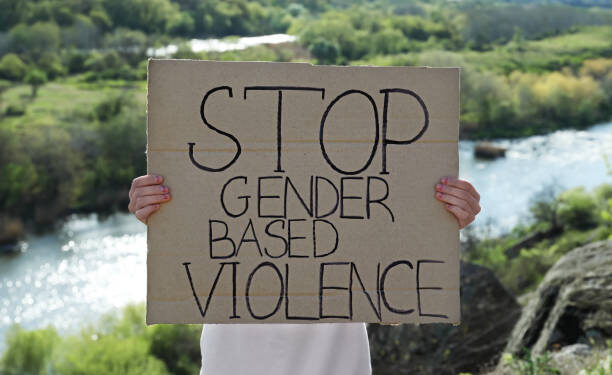By Kouthar Sambo
As 16 Days of Activism against Gender-Based Violence (GBV) edges closer to an end, we peel the layers on how cultural beliefs and practices perpetuate violence against women and children.
What do the numbers say?
GBV is an ongoing social ill that continues to rear its ugly head in society. National Community Police Forum (CPF) Fransina Lukas said GBV on the Cape Flats has reached alarming proportions.
According to Lukas, 30% of GBV cases in South Africa are emanating from the Western Cape.
“On average, three women are murdered daily by an intimate partner or spouse. These attacks happen behind closed doors and if we look at the period from January to June (2023), more than 12 800 women fell victim to domestic violence – they were either assaulted physically, domestically, or emotionally, and this was at the hands of their partners,” outlined Lukas.
Lukas went on to highlight the impacts of poverty and hunger, which are one of the major driving forces of abuse and violence.
“Women in these abusive relationships are mostly unemployed, and dependent on their financial well-being and their children’s, by their partner or spouse they are living with due to the financial gain,” said Lukas.
Additionally, children are enticed to join a gang due to the dire circumstances at their home, explained Lukas, poverty, and unemployment prevail.
“These children are being lured through the bling or living the so-called good life where they are enticed with shoes, clothes and in the process, many of them are being used to commit crimes and lose their lives in the process,” detailed Lukas.
The Patriarchy in the isiXhosa culture
The imam at Masjid Murtaza, in Gugulethu Ishmael Gqamane, said the isiXhosa culture is a “male dominant culture.”
“Men are expected to lead and guide the women in whichever direction he deems fit. The idea of patriarchy is very entrenched through various cultural practices that ensure men are respected and obeyed and that a woman submits herself totally to a man – for instance, a wife to her husband and a sister to her brother,” explained Gqamane.
“If she is not submissive, she is to be beaten until she is submissive to a man.”
Imam went on to detail how toxic masculinity and abuse are reinforced. He used the example of the lobola (the dowry), which contributes to the concept of ownership of a woman.
“When a man undergoes the initiation process to become a man, in that process, they are taught that they are superior to women and that they need to ensure that women understand this. And if they are unable to stamp their dominance, it means they are weaklings and this leads to violence because he feels the need to remind her that her place is below him,” elaborated Gqamane.
In the isiXhosa culture, explained Gqamane, her own family has less authority over her than the man’s family.
“Again, if she should challenge him, the first means of approach for the male would be violence because he needs to show how manly he is,” explained Gqamane.
Misconceptions about women in Islam explained
Furthermore, Imam at the Jamia Mosque and senior marriage counselor Imam Mouti Saban said the Almighty has given both women and men significant rights as both parties play crucial roles.
“Women play pivotal roles but they must not overstep the rules as pertained and explained in the Quran. There are no power imbalances and there should not be as long as the parties understand their roles in Islam,” explained Saban.
Women in Islam are allevated but those looking from the outside in, always think our women are oppressed.
“The Almighty says in the holy Quran that women shall have similar rights against the injustices, but men have a decree over them,” detailed Saban.
However, people misinterpret this verse, added Saban, because Surah An-Nisa says that men are the “protectors and maintainers of women.”
“Women need not go out and work, the man should take care of her and support her, and treat her like a Queen. Our prophet said that the best of you are those who have moral excellence in faith and are the kindest with their wives because they are the mothers of our children, and paradise lies beneath the feet of a mother,” reiterated Saban.
Photo: Pixabay






 WhatsApp us
WhatsApp us 

